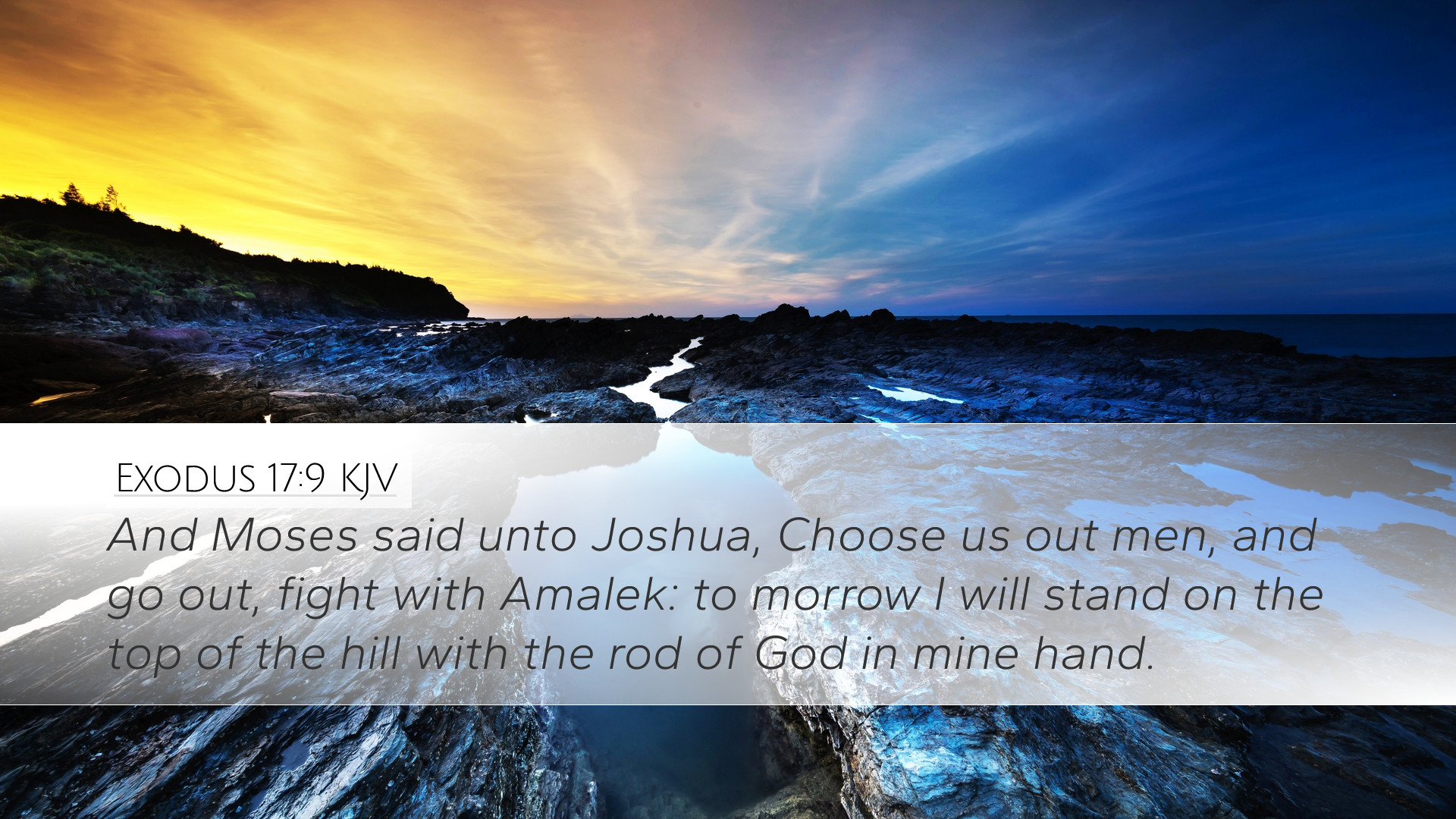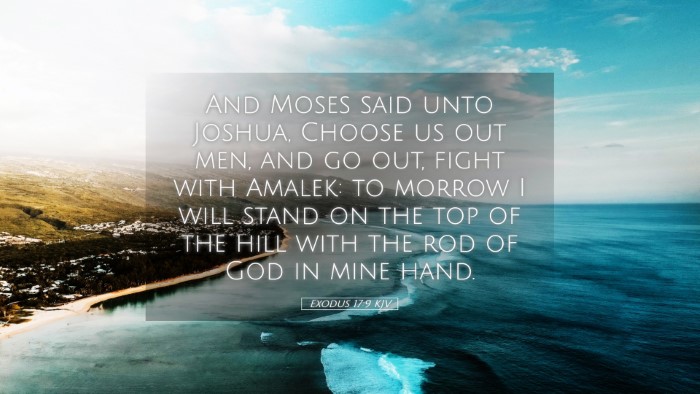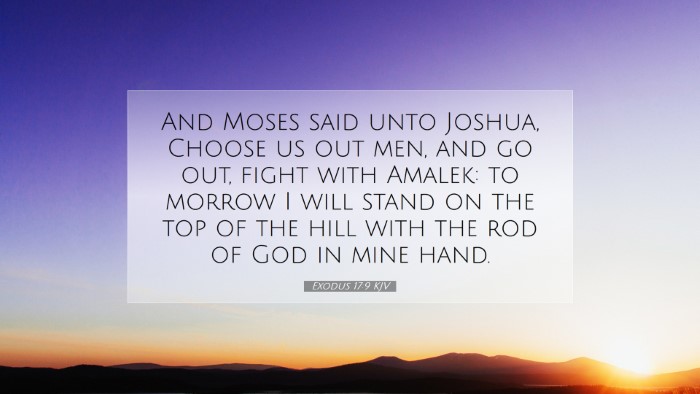Exodus 17:9 Commentary
Verse: "And Moses said unto Joshua, Choose us out men, and go out, fight with Amalek: tomorrow I will stand on the top of the hill with the rod of God in mine hand." (Exodus 17:9)
Introduction
This scripture marks a pivotal moment in Israel’s journey through the wilderness. The confrontation with the Amalekites introduces themes of leadership, divine support, and the importance of obedience in times of trial. Commentators like Matthew Henry, Albert Barnes, and Adam Clarke provide rich insights into this passage, which can greatly benefit pastors, scholars, and students of the Bible.
Historical Context
The Amalekites were a nomadic tribe opposed to Israel's liberation. This encounter occurs shortly after Israel's deliverance from Egypt, displaying the immediate challenges they faced as a newly formed nation. The command to Joshua indicates the necessity of physical warfare in the face of spiritual victory.
Matthew Henry's Insights
Matthew Henry emphasizes the need for leadership and the selection of capable men for battle. He notes that:
- The task of choosing men underscores the importance of preparation and the role of leaders.
- Moses’s directive to Joshua highlights the necessity of military engagement and the emergence of Joshua as a leader among the Israelites.
- Henry also reflects on the typological significance of the rod of God representing divine authority and intervention.
Albert Barnes' Commentary
Albert Barnes offers insights that expand on the military and spiritual dimensions of this verse:
- He points out the strategic oversight of Moses, who commands Joshua while also securing a place on the hill for divine intercession.
- Barnes notes that the “rod of God” signifies God’s power in Israel’s struggles, reinforcing the understanding that victory is ultimately granted by the Lord.
- Moreover, Barnes discusses the communal aspect of fighting against evil, illustrating that while some men fight, others must uphold spiritual authority and prayerfulness.
Adam Clarke's Analysis
Adam Clarke’s analysis provides a detailed examination of the implications of this battle:
- Clarke highlights the significance of Moses’ posture—standing with the rod raised—as a sign of reliance on divine help.
- He elaborates on the moral lessons of dependence upon God, illustrating that human strength alone is insufficient without divine support.
- Clarke also makes connections to New Testament principles, suggesting parallels between this physical battle and the spiritual warfare Christians face today.
Theological Reflections
This verse serves as a microcosm of broader biblical themes:
- Leadership: The interplay between Moses and Joshua highlights generational leadership and mentorship in ministry.
- Divine Providence: The segment of Moses standing with the rod signifies God’s overarching presence and control in human affairs.
- Community Engagement: The call for men to fight illustrates the collective responsibility of believers to confront evil and support one another in struggles.
Application for Faith Communities
For modern readers, this passage offers several applications:
- Church leaders can reflect on their role in preparing individuals for spiritual combat against contemporary challenges.
- Believers are reminded of the importance of prayer and God’s authority in their lives as they face personal and corporate challenges.
- This scripture can inspire discussions around equipping church members for ministry and service in their communities.
Conclusion
Exodus 17:9 is a profound reminder of the intersection between divine authority and human action. The insights gleaned from public domain commentaries enrich our understanding and appreciation of this narrative. It challenges readers to engage actively in their faith while relying on God's power for victory over trials.


